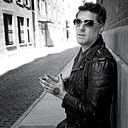Member-only story
Machiavelli Was Better Than You Think
The namesake for “Machiavellian” was far more than a unidimensional schemer
“A Prince should show himself a patron of merit.”
“A Prince who is not wise himself cannot be well advised by others.”
“I do not believe that divisions purposely caused can ever lead to good.”
No, these are not the sayings of Buddha. They are aphorisms from Italian diplomat and writer Niccolò Machiavelli’s 1532 classic of realpolitik and power-grabbing, The Prince.
At a time when the roster of Trumpians charged or convicted is growing longer than a working parent’s to-do list, Machiavelli’s controversial and posthumously published handbook to political ruthlessness is looking distinctly noble and pensive by comparison. Its insights bear reconsideration in an era of ethically blind power-wielding.
Take, for example, Machiavelli’s advice about which constituency a leader should seek to appease: “A Prince can never secure himself against a disaffected people, their number being too great, while he may against a disaffected nobility, since their number is small.” Translated to our own era, this is a mandate for economic populism. Democratic aspirants take note.
